- International
- Today’s Paper
- Premium Stories
- Bihar 10th Result
- Express Shorts
- Health & Wellness
- Board Exam Results

This Quote Means: Said by Martin Luther King Jr., ‘Injustice anywhere is a threat to justice everywhere’
The line is often used to highlight the lack of socio-economic and/or political justice and also to demonstrate how various strands of society are interconnected. understanding this quote could be beneficial in the upsc cse's essay paper and the ethics (gs-iv) portion..
The quote “Injustice anywhere is a threat to justice everywhere” is one among many by American Baptist minister, civil rights activist and Nobel Laureate Martin Luther King Jr, which retains their relevance even today. The line is often used to highlight the lack of socio-economic and/or political justice and also to demonstrate how various strands of society are interconnected.
With regards to the UPSC-CSE examination, understanding this quote could be beneficial in the Mains examination’s Essay writing paper, and also in the Ethics (GS-IV) portion. We dive deeper into the quote and its significance.

What is the full quote?
This quote appears in a 1963 letter King wrote from the Birmingham Jail (in the state of Alabama) that was addressed to his “fellow clergymen”. King wrote the letter as a response to members of the clergy calling his activism “unwise and untimely”. King wrote:
“Moreover, I am cognizant of the interrelatedness of all communities and states. I cannot sit idly by in Atlanta and not be concerned about what happens in Birmingham. Injustice anywhere is a threat to justice everywhere. We are caught in an inescapable network of mutuality, tied in a single garment of destiny. Whatever affects one directly, affects all indirectly. Never again can we afford to live with the narrow, provincial “outside agitator” idea. Anyone who lives inside the United States can never be considered an outsider anywhere within its bounds.” he writes.
Through his words, King disposes of the notion that only the people directly affected by any sort of injustice can protest against it – he reasons that as human beings, we are all tied to one another, and what affects one community has the potential of affecting many others.

What does the quote mean?
In the years after the US Supreme Court ruled against racial segregation in 1954 in ‘Brown v Board of Education’, tensions erupted continuously between segregationists (white supremacists) and African American communities in various parts of the American South.
Birmingham Police, at this time, was notorious for its excessive use of force and brutality. In response, King and other civil rights activists created the ‘Birmingham Manifesto’, which called for justice through both Christian and American ideals. King and his supporters also held several non-violent protests, in keeping with the spirit of the manifesto. It was during one of these protests that he was arrested for violating a state order forbidding such demonstrations.
The letter can be read as a document detailing King’s understanding of civil disobedience and also his greater vision for humanity. For him, what affects even one person directly, has consequences for everyone else indirectly. He refuses to see society in silos, each group ‘protected’ via its own insularity. This is also the idea that reinforces racism, of keeping communities as far away from each other as possible, and what King fought against his entire life.
In the letter, King also talks about the complexity of the processes of legality and justice: “Sometimes a law is just on its face and unjust in its application. For instance, I have been arrested on a charge of parading without a permit. Now, there is nothing wrong in having an ordinance which requires a permit for a parade. But such an ordinance becomes unjust when it is used to maintain segregation and to deny citizens the First-Amendment privilege of peaceful assembly and protest.”
Reading this along with the quote mentioned above, it is clear that King is also reflecting on how it is important to analyse how notions of justice overlap or diverge from what is strictly legal. If a law is being used to unfairly target individuals or a community, it must be rectified. It is not enough to think about our own benefits and selfish motives – in a democratic country, equality and equal treatment of all should be the primary concern.
Why the quote is relevant
King’s words resonate with one of the most famous World War II statements, frequently attributed to the German pastor Martin Niemöller:
“First they came for the socialists, and I did not speak out—because I was not a socialist. Then they came for the trade unionists, and I did not speak out—because I was not a trade unionist. Then they came for the Jews, and I did not speak out—because I was not a Jew. Then they came for me—and there was no one left to speak for me.”
- Did Congress ‘give away’ Katchatheevu island to Sri Lanka?
- Crashes, blowout, leadership shake-up: What explains the Boeing MAX's issues?
- Explained: The world’s 1st conversational AI with emotional intelligence from Hume
Like King’s quote, this statement also highlights how it is ultimately the duty of everyone to speak out and act against injustice happening around them, whether or not they are directly affected.
Another less abstract way in which King’s words find resonance is through the concept of Public Interest Litigation (PIL), which incidentally also evolved during the 1960s in the US. It was formulated to provide legal representation to marginalised groups and interests because the legal services market failed to provide relevant services to large sections of the population and for issues that did not enjoy mainstream popularity.
In India, the PIL came about as a product of judicial activism. Supreme Court Justices V R Krishna Iyer and P N Bhagwati were the first to introduce the concept in India in the 1980s. Under this, any citizen or organisation can move a court for the enforcement of the rights of any person or a group who cannot access the remedies provided by the court due to material or any other kind of disadvantage.
The apex court further defined the PIL as “a legal action initiated in a court of law for the enforcement of public interest or general interest in which the public or a class of the community have pecuniary interest or some interest by which their legal rights or liabilities are affected”, in ‘ Janata Dal v H S Chowdhury’ (1992). The concept of PIL thus reinforces King’s words: “Injustice anywhere is a threat to justice everywhere”.

In Maharashtra, BJP is challenged by its own machinations Subscriber Only

Why Katchatheevu is causing a splash in Tamil Nadu poll Subscriber Only
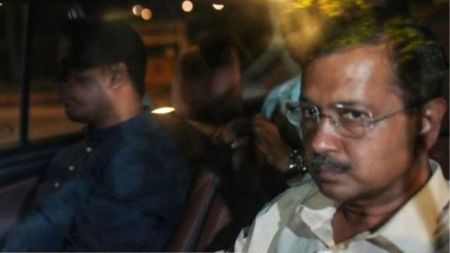
Why the Indian public does not seem to care about Subscriber Only
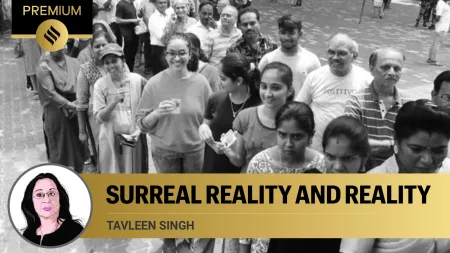
India must not hesitate to confront some harsh truths Subscriber Only

UPSC Key: Katchatheevu, Vaikom satyagraha, Wheat stocks and more Subscriber Only

Will this be MS Dhoni’s Last Dance? Subscriber Only
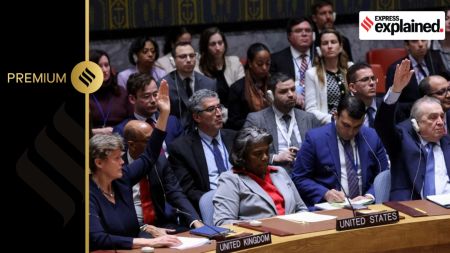
Expert Explains: Why US let UNSC resolution on Gaza ceasefire Subscriber Only
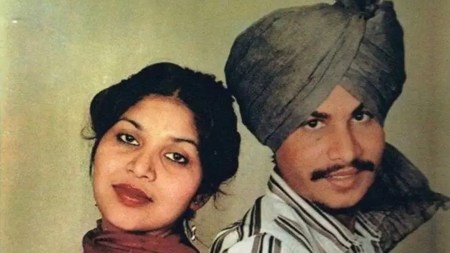
The Chamkila story: From Dalit labourer Dhani Ram to music Subscriber Only
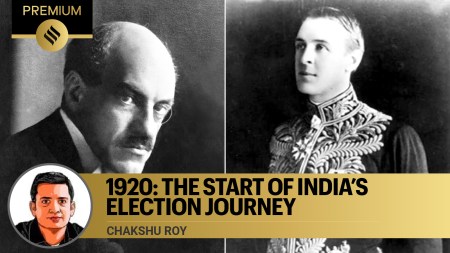
1920: The start of India’s election journey Subscriber Only
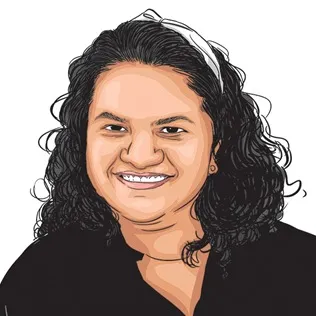
Arushi works with the online desk at The Indian Express. She writes on entertainment, culture, women's issues, and sometimes a mix of all three. She regularly contributes to the Explained and Opinion sections and is also responsible for curating the daily newsletter, Morning Expresso. She studied English literature at Miranda House, University of Delhi, along with a minor in Sociology. Later, she earned a post-graduate diploma in Integrated Journalism from the Asian College of Journalism, where she learnt the basics of print, digital and broadcast journalism. Write to her at [email protected]. You can follow her on LinkedIn and Instagram. ... Read More
- Express Explained
- martin luther king jr
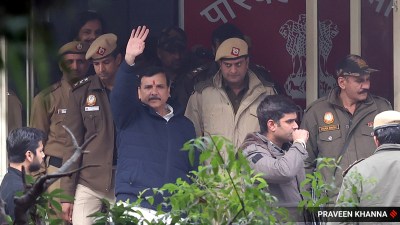
The Supreme Court has granted bail to AAP leader Sanjay Singh, who was arrested for his alleged involvement in the Delhi excise policy case. The Enforcement Directorate had no objection to his release after six months in jail. The ED accused him of receiving Rs 2 crore in cash and influencing changes in the liquor policy.

More Explained

Best of Express

EXPRESS OPINION

Apr 02: Latest News
- 01 IPL 2024: How Mumbai Indians collectively combusted to disappoint home fans
- 02 Rohit Sharma gets startled by fan during MI vs RR IPL match. WATCH
- 03 32-year-old man dies trying to swerve car to save animal on Gwal Pahari road
- 04 MI vs RR: Hardik Pandya booed, Rohit Sharma doesn’t last long, an Impact sub that bombed and more
- 05 Cryptocurrency scam: ED attaches assets worth Rs 433 cr of Darji, others
- Elections 2024
- Political Pulse
- Entertainment
- Movie Review
- Newsletters
- Gold Rate Today
- Silver Rate Today
- Petrol Rate Today
- Diesel Rate Today
- Web Stories
Injustice Anywhere Is A Threat To Justice Everywhere Essay
When Martin Luther King Jr. gave his “I Have a Dream” speech in 1963, he spoke about the need for justice and equality for all people, regardless of race. King understood that injustice anywhere is a threat to justice everywhere. This is just as true today as it was then.
Slavery is one of the most obvious examples of injustice. It’s hard to imagine anything more unjust than one person owning another person and treating them as property. Slavery was abolished in the United States in 1865, but it still exists in many parts of the world today. Even in countries where slavery is not legal, there are still people who are treated as property. Women, for example, are often discriminated against and treated like second-class citizens.
Liberalism is based on the belief that all people are equal and should have the same rights and opportunities. Martin Luther King Jr. was a liberal, and he fought for the rights of all people, regardless of race. Today, there are still many people who believe in liberalism and fight for justice. However, there are also many people who believe that some groups of people are more deserving of justice than others.
Injustice anywhere is a threat to justice everywhere. We need to continue to fight for the rights of all people, no matter their race, gender, or any other characteristic. We need to stand up to discrimination and bigotry in all forms. Only then can we create a world that is truly just and equal for all.
Inconceivably, there are those who believe that what one does is just because it happens to be difficult or impossible. These people believe this way because they cannot comprehend how doing so would hurt someone else. In any case, the term injustice refers to anything from the absence of justice to its exact polar opposite. The word is used either in reference to a particular occurrence or even a larger event. Today, crime and social injustice are frequently mentioned together in the media.
There are people who will say that a single event, or even a person, can cause injustice. But is that really the case?
Slavery is probably one of the most well-known and largest examples of injustice in history. It was only within the last century or so that slavery was finally abolished. Even though it was abolished, there are still people today who live in conditions similar to slavery. Slavery is defined as “the state of one bound in servitude to a master.” This means that the slave has no freedom and is forced to work for the master. The slave is also considered property of the master and can be bought and sold like any other piece of property. Slavery is often seen as an unjust system because it takes away the freedom of the slave and treats them as if they are not a human being.
Liberalism is a political philosophy that believes in individual rights, liberty, and equality. Liberalism also believes in government by consent of the people. This means that the government should only have the power that the people allow it to have. Liberalism is often seen as a threat to justice because it can be used to justify any number of injustices. For example, some people believe that slavery was justified by liberalism because it allowed for the free market to exist. Others believe that liberalism is a threat to justice because it allows for too much freedom and not enough regulation.
Martin Luther King Jr. was a civil rights leader who fought for the rights of African Americans. He is best known for his “I Have A Dream” speech. In this speech, he talked about how he wanted to see a day when all people were treated equally. He also talked about how he wanted to see an end to discrimination and injustice. King was assassinated in 1968, but his dream is still alive today.
Injustice anywhere is a threat to justice everywhere. This means that if there is one instance of injustice, it threatens the existence of justice altogether. Injustice is often seen as a threat to society because it can lead to more violence and crime. It can also lead to mistrust and hatred between people. Injustice is a problem that needs to be addressed in order to maintain a just society.
People may also come together and confront one other to either defend or dispute these faults. This may be examined in several historical cases, as well as those that encourage Martin Luther King Jr.’s belief that any place with injustice is a portent for the rest of society.
King’s “Letter from Birmingham Jail” is an excellent example of someone who has been fighting for justice and agitating against the status quo to make a change. In his letter, King talks about his philosophy towards social change and how it should be done. He also addresses some of the criticisms he was receiving at the time. Despite all this, he still firmly believes that people have to stand up for what is right, even if it seems like an impossible task.
While there have been many movements since King wrote his letter, it seems like not much has changed in terms of how people view social injustice. There are still those who are content with the way things are and do not see any reason to try and fix something that is not broken. However, there are also plenty of people who are aware of the ills of society and are working to make a difference, even if it is just a small one.
It is important to note that social injustice does not only exist in America but all around the world. There are many countries that have a long history of slavery and oppression. Even though some of these countries have made great strides in recent years, there is still much work to be done in order to achieve true equality.
The fight for justice is an ongoing battle that will likely never be won completely. However, it is important to keep fighting for what is right and to never give up hope. As long as there are people who are willing to stand up against injustice, there is a chance that things can change for the better. Martin Luther King Jr. once said, “Injustice anywhere is a threat to justice everywhere.” This is as true now as it was when he first said it. In order to make the world a better place, we must all work together to fight against injustice in all its forms.
More Essays
- How Does Javert Fight Against Injustice Essay
- Examples Of Environmental Injustice Essay
- Summary Of I Have A Dream Speech Essay
- Justice In The Dark Knight Essay
- The Moral Arc Of Justice Essay
- Socrates Ideas Of True Justice In The Republic Essay
- Essay about Plato Justice
- Essay about Theme Of Justice In Plato’s Republic
- Gandhi And Martin Luther King Similarities
Leave a Comment Cancel reply
Save my name, email, and website in this browser for the next time I comment.
Home — Essay Samples — Law, Crime & Punishment — Justice — Injustice Anywhere is a Threat to Justice Everywhere
Injustice Anywhere is a Threat to Justice Everywhere
- Categories: Discrimination Justice Segregation
About this sample

Words: 664 |
Published: Aug 24, 2023
Words: 664 | Page: 1 | 4 min read
Table of contents
Introduction: the essence of justice and its universal implications, the ripple effect of injustice, undermining trust in institutions, social fabric and unity, human rights and moral imperative, a call to action: the power of collective efforts, from awareness to change, conclusion: championing justice as a collective imperative.

Cite this Essay
Let us write you an essay from scratch
- 450+ experts on 30 subjects ready to help
- Custom essay delivered in as few as 3 hours
Get high-quality help

Dr. Karlyna PhD
Verified writer
- Expert in: Social Issues Law, Crime & Punishment

+ 120 experts online
By clicking “Check Writers’ Offers”, you agree to our terms of service and privacy policy . We’ll occasionally send you promo and account related email
No need to pay just yet!
Related Essays
2 pages / 921 words
3 pages / 1350 words
5 pages / 2212 words
6 pages / 2615 words
Remember! This is just a sample.
You can get your custom paper by one of our expert writers.
121 writers online
Still can’t find what you need?
Browse our vast selection of original essay samples, each expertly formatted and styled
Related Essays on Justice
The death of Lennie in John Steinbeck's novel "Of Mice and Men" is a pivotal moment that raises questions about justice, morality, and the treatment of the mentally disabled. In this essay, we will analyze the circumstances [...]
The Anna Garcia case presents a complex legal scenario that raises important questions about ethics, justice, and the role of the legal system. By critically analyzing the arguments and exploring multiple perspectives, we have [...]
In "Twelve Angry Men," Juror Nine emerges as a powerful figure who embodies the transformative power of empathy. His ability to challenge preconceived notions, unveil the power of perspective, and foster a more inclusive [...]
Lather And Nothing Else Summary: A Tale of Moral Dilemma and Personal GrowthImagine yourself in a small, quaint barber shop nestled in a sleepy coastal town. The scent of aftershave lingers in the air, and the sound of clippers [...]
In conclusion, Calvin Barry's contributions to the field of criminal law are nothing short of extraordinary. Through his unwavering dedication to justice, sharp legal acumen, and commitment to community engagement, he has become [...]
The United States Supreme Court is made of eight Associate Justices and one Chief Justice. The Chief Justice is paid more than the Associate Justices but retains an equal vote to the Associate Justices. The eight associate [...]
Related Topics
By clicking “Send”, you agree to our Terms of service and Privacy statement . We will occasionally send you account related emails.
Where do you want us to send this sample?
By clicking “Continue”, you agree to our terms of service and privacy policy.
Be careful. This essay is not unique
This essay was donated by a student and is likely to have been used and submitted before
Download this Sample
Free samples may contain mistakes and not unique parts
Sorry, we could not paraphrase this essay. Our professional writers can rewrite it and get you a unique paper.
Please check your inbox.
We can write you a custom essay that will follow your exact instructions and meet the deadlines. Let's fix your grades together!
Get Your Personalized Essay in 3 Hours or Less!
We use cookies to personalyze your web-site experience. By continuing we’ll assume you board with our cookie policy .
- Instructions Followed To The Letter
- Deadlines Met At Every Stage
- Unique And Plagiarism Free

This Quote Means: Said by Martin Luther King Jr., ‘Injustice anywhere is a threat to justice everywhere’
T he quote “Injustice anywhere is a threat to justice everywhere” is one among many by American Baptist minister, civil rights activist and Nobel Laureate Martin Luther King Jr, which retains their relevance even today. The line is often used to highlight the lack of socio-economic and/or political justice and also to demonstrate how various strands of society are interconnected.
With regards to the UPSC-CSE examination, understanding this quote could be beneficial in the Mains examination's Essay writing paper, and also in the Ethics (GS-IV) portion. We dive deeper into the quote and its significance.
What is the full quote?
This quote appears in a 1963 letter King wrote from the Birmingham Jail (in the state of Alabama) that was addressed to his “fellow clergymen”. King wrote the letter as a response to members of the clergy calling his activism “unwise and untimely”. King wrote:
“Moreover, I am cognizant of the interrelatedness of all communities and states. I cannot sit idly by in Atlanta and not be concerned about what happens in Birmingham. Injustice anywhere is a threat to justice everywhere. We are caught in an inescapable network of mutuality, tied in a single garment of destiny. Whatever affects one directly, affects all indirectly. Never again can we afford to live with the narrow, provincial "outside agitator" idea. Anyone who lives inside the United States can never be considered an outsider anywhere within its bounds.” he writes.
Through his words, King disposes of the notion that only the people directly affected by any sort of injustice can protest against it – he reasons that as human beings, we are all tied to one another, and what affects one community has the potential of affecting many others.
In Opinion | As India’s wrestlers stand on the banks of the Ganges, let’s hang our heads in shame
What does the quote mean?
In the years after the US Supreme Court ruled against racial segregation in 1954 in 'Brown v Board of Education', tensions erupted continuously between segregationists (white supremacists) and African American communities in various parts of the American South.
Birmingham Police, at this time, was notorious for its excessive use of force and brutality. In response, King and other civil rights activists created the ‘Birmingham Manifesto’, which called for justice through both Christian and American ideals. King and his supporters also held several non-violent protests, in keeping with the spirit of the manifesto. It was during one of these protests that he was arrested for violating a state order forbidding such demonstrations.
The letter can be read as a document detailing King’s understanding of civil disobedience and also his greater vision for humanity. For him, what affects even one person directly, has consequences for everyone else indirectly. He refuses to see society in silos, each group ‘protected’ via its own insularity. This is also the idea that reinforces racism, of keeping communities as far away from each other as possible, and what King fought against his entire life.
In the letter, King also talks about the complexity of the processes of legality and justice: “Sometimes a law is just on its face and unjust in its application. For instance, I have been arrested on a charge of parading without a permit. Now, there is nothing wrong in having an ordinance which requires a permit for a parade. But such an ordinance becomes unjust when it is used to maintain segregation and to deny citizens the First-Amendment privilege of peaceful assembly and protest.”
Also Read | Said by Karl Marx, This Quote Means: ‘History repeats itself, first as a tragedy, second as a farce’
Reading this along with the quote mentioned above, it is clear that King is also reflecting on how it is important to analyse how notions of justice overlap or diverge from what is strictly legal. If a law is being used to unfairly target individuals or a community, it must be rectified. It is not enough to think about our own benefits and selfish motives – in a democratic country, equality and equal treatment of all should be the primary concern.
Why the quote is relevant
King’s words resonate with one of the most famous World War II statements, frequently attributed to the German pastor Martin Niemöller:
“First they came for the socialists, and I did not speak out—because I was not a socialist. Then they came for the trade unionists, and I did not speak out—because I was not a trade unionist. Then they came for the Jews, and I did not speak out—because I was not a Jew. Then they came for me—and there was no one left to speak for me.”
Best of Explained
- A human hand in Odisha train crash? Why the investigation is looking at this angle
- What is a khap?
- This Quote Means: Said by Martin Luther King Jr., 'Injustice anywhere is a threat to justice everywhere'
Click here for more
Like King’s quote, this statement also highlights how it is ultimately the duty of everyone to speak out and act against injustice happening around them, whether or not they are directly affected.
Another less abstract way in which King’s words find resonance is through the concept of Public Interest Litigation (PIL), which incidentally also evolved during the 1960s in the US. It was formulated to provide legal representation to marginalised groups and interests because the legal services market failed to provide relevant services to large sections of the population and for issues that did not enjoy mainstream popularity.
In India, the PIL came about as a product of judicial activism. Supreme Court Justices V R Krishna Iyer and P N Bhagwati were the first to introduce the concept in India in the 1980s. Under this, any citizen or organisation can move a court for the enforcement of the rights of any person or a group who cannot access the remedies provided by the court due to material or any other kind of disadvantage.
The apex court further defined the PIL as “a legal action initiated in a court of law for the enforcement of public interest or general interest in which the public or a class of the community have pecuniary interest or some interest by which their legal rights or liabilities are affected”, in 'Janata Dal v H S Chowdhury' (1992). The concept of PIL thus reinforces King’s words: “Injustice anywhere is a threat to justice everywhere”.
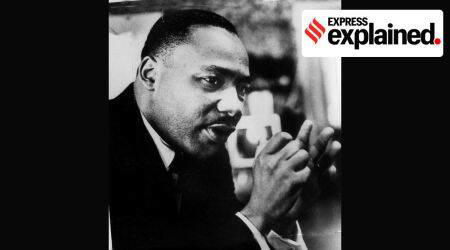

Looking for a One-stop Solution to prepare for ‘Ethics, Integrity, and Aptitude’ and ‘Essay and Answer Writing’ for UPSC?
Martin Luther King, Jr.: 'Injustice anywhere is a threat to justice everywhere.'
Injustice anywhere is a threat to justice everywhere.
In his famous quote, Martin Luther King, Jr. stated, "Injustice anywhere is a threat to justice everywhere." This powerful statement succinctly captures the essence and significance of the interconnectedness of justice and injustice in our society. King reminds us that the presence of injustice in any corner of the world poses a direct threat to the existence of justice everywhere. To delve deeper into the meaning and importance of this quote, let us explore an unexpected philosophical concept: the concept of moral interconnectedness.Moral interconnectedness suggests that every moral action, regardless of its scale or context, has a ripple effect that extends far beyond its immediate impact. It proposes that the consequences of injustice are not isolated occurrences but rather reverberate through the fabric of society, potentially leading to a degradation of justice on a larger scale. This concept sheds light on the deeper truth inherent in King's quote – the belief that injustice, no matter where it occurs, tarnishes the very foundation of justice itself.Consider a scenario where injustice is prevalent in a remote corner of the world. In this hypothetical place, corruption runs rampant, laws are unjustly enforced, and basic human rights are infringed upon. If we were to ignore or dismiss this injustice as a distant problem of no concern to us, we fail to understand the interconnected nature of justice. By turning a blind eye, we indirectly contribute to the erosion of justice in our own societies, accepting the normalization of inequality and oppression.Furthermore, the interconnectedness of justice and injustice extends beyond geographical boundaries. Injustice isn't confined to one country or region; it transcends borders and impacts societies across the globe. If we allow injustice to persist in one part of the world, it sets a dangerous precedent, implicitly condoning similar acts elsewhere. The proliferation of injustice breeds a culture that undermines the principles of fairness and equity, endangering the progress of justice worldwide.Moreover, the threat injustice poses to justice is not limited to its immediate consequences. Injustice often perpetuates a cycle of violence, discrimination, and division within societies. If left unaddressed, the consequences of injustice can fester, fueling discontent and unrest among marginalized communities. We have witnessed throughout history how unresolved injustices can spark social movements, revolutions, or conflicts, further disrupting the pursuit of justice on a broader scale.To truly uphold justice, we must recognize its inextricable link to injustice and actively confront any form of inequality or oppression, regardless of its location or magnitude. When we stand up against injustice, we safeguard the principles of justice in our own societies and send a powerful message to the world, reinforcing the importance of fairness, equality, and human dignity.Martin Luther King, Jr.'s quote reminds us of our responsibility to resist injustice whenever and wherever we encounter it. It illuminates the interconnectedness of justice, urging us to view injustice not as isolated incidents but as a collective threat to the fabric of justice everywhere. By embracing the concept of moral interconnectedness, we broaden our understanding of the quote's deeper implications, recognizing that upholding justice demands our continuous commitment to stand against all forms of injustice, no matter where they may unfold.In conclusion, Martin Luther King, Jr.'s assertion that "Injustice anywhere is a threat to justice everywhere" resonates with truth and timeless significance. This quote serves as a powerful reminder of the interconnected nature of justice, as well as the imperative to confront and rectify injustice in all its manifestations. By embracing the concept of moral interconnectedness and acknowledging the far-reaching consequences of injustice, we can strive towards a more just and equitable society, working collectively to ensure that justice thrives, undeterred by the threat of injustice.
Martin Luther King, Jr.: 'There can be no deep disappointment where there is not deep love.'
Martin luther king, jr.: 'every man must decide whether he will walk in the light of creative altruism or in the darkness of destructive selfishness.'.
- Entertainment
- Environment
- Information Science and Technology
- Social Issues
Home Essay Samples Law American Criminal Justice System
Injustice Anywhere Is A Threat To Justice Everywhere
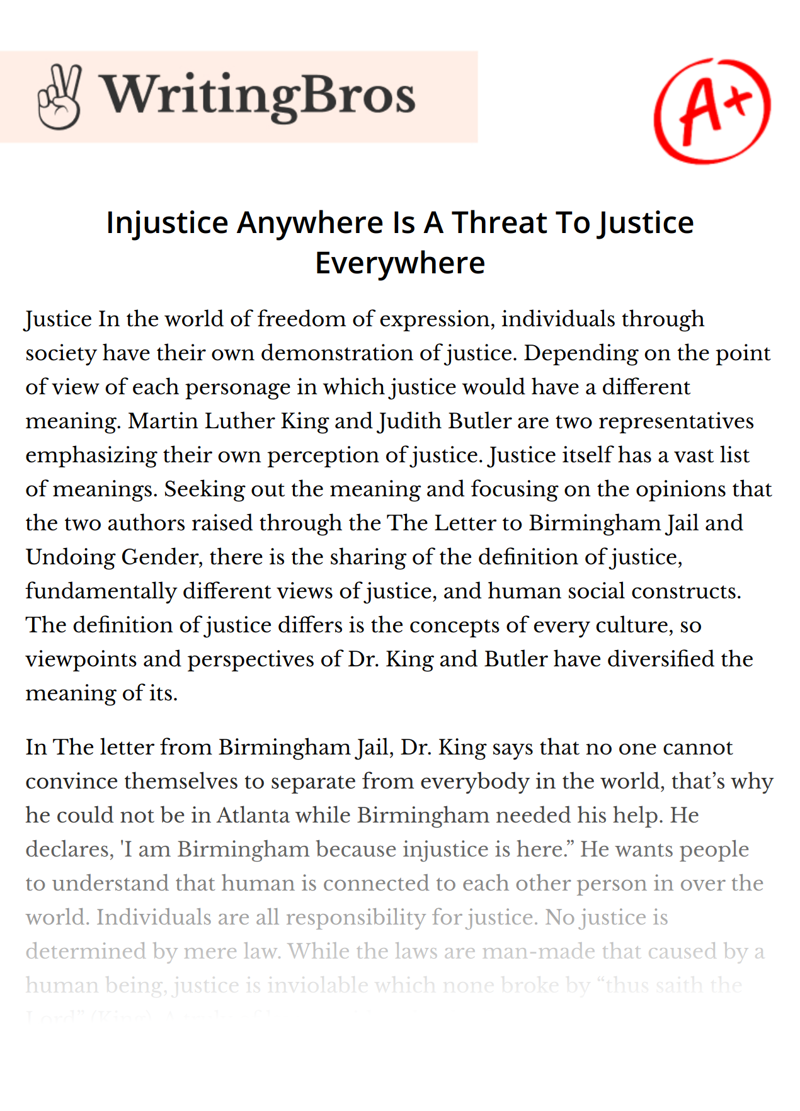
*minimum deadline
Cite this Essay
To export a reference to this article please select a referencing style below

- Edward Snowden
- American Constitution
- Criminal Psychology
- Business Law
Related Essays
Need writing help?
You can always rely on us no matter what type of paper you need
*No hidden charges
100% Unique Essays
Absolutely Confidential
Money Back Guarantee
By clicking “Send Essay”, you agree to our Terms of service and Privacy statement. We will occasionally send you account related emails
You can also get a UNIQUE essay on this or any other topic
Thank you! We’ll contact you as soon as possible.

- open search
From the latest big breakthrough to the most influential and inspiring figures on campus to Pitt in the community, Pittwire is your official source for what’s happening now.
- Health and Wellness
- Technology and Science
- Arts and Humanities
- Community Impact
- Diversity, Equity, and Inclusion
- Innovation and Research
- Our City/Our Campus
- Pitt Magazine
- Features & Articles
- Accolades & Honors
- Ones to Watch
- Announcements and Updates
- Life at Pitt
- Arts & Sciences
- Computing & Information
- Dental Medicine
- Engineering
- General Studies
- Health & Rehabilitation
- Honors College
- Public & Intl Affairs
- Public Health
- Social Work
- COVID-19 Response
- Sustainability
- Department of English

Subscribe to Pittwire Today
Exploring the rhetoric of martin luther king jr..

Many turns of phrase in Martin Luther King Jr.’s renowned 1963 “ Letter from Birmingham Jail ” are familiar to Americans today:
Injustice anywhere is a threat to justice everywhere.
We know through painful experience that freedom is never voluntarily given by the oppressor; it must be demanded by the oppressed.
One has not only a legal, but a moral responsibility to obey just laws. Conversely, one has a moral responsibility to disobey unjust laws.
The letter, written while King was in solitary confinement after being arrested for demonstrating against segregation in Alabama, is addressed to a handful of clergymen who had themselves written a letter to the local newspaper decrying his actions. “We are convinced that these demonstrations are unwise and untimely,” they wrote. Their letter ends with a refrain that’s also familiar today: “We appeal to both our white and Negro citizenry to observe the principles of law and order and common sense.”
But what makes King’s letter—and not the clergymen’s—so memorable, regardless of a reader’s race or background?
“King is a master of rhetoric,” says third-year literature PhD student and Seminar in Composition instructor Lissette Escariz Ferrá. “I teach the letter as one of the main texts for my rhetoric unit because it is so rich." Escariz has included King’s letter in her syllabus every semester for the past several years as a model of impactful rhetoric—defined simply as the art of persuasive language.
“Every time I teach King’s letter, my students spark a conversation about how the inequalities King and his supporters were fighting against are still undeniably present today,” says Escariz. In part, that’s due to the way King writes.
She explains to her students that King’s composition demonstrates the foundational principles of rhetoric—ethos, an appeal to authority and credibility; logos, an appeal to reason; pathos, an appeal to emotion; and Kairos, the timeliness of an argument.
And for her, King’s words feel personal. A Cuban immigrant who came to the U.S. speaking only Spanish, Escariz says she remembers reading the letter as a teenager.
Every time I teach King’s letter, my students spark a conversation about how the inequalities King and his supporters were fighting against are still undeniably present today.
“As an ethnic minority in the U.S., I have experienced xenophobia. When I lived in Cuba, the U.S. was a model of equality and opportunity to many from the outside,” she says. “Therefore I had this idea that laws in the U.S. were always good, especially when I was a young high school freshman. But when I read the letter, and particularly the part where King says that if you feel a law is unjust you have to stand up against it, I began to realize that equality isn’t extended to everyone. His words are very powerful.”
In her course, Escariz helps students connect that power to their own lives and to the urgency of the letter itself. “Something King does to refute the clergymen who call him an extremist is remind them that Jesus Christ was an extremist for love. He makes that connection to show that a figure they worship was once extremely controversial, just like they are making King look. When I read those lines it reminds me of what King represents to so many. He is a figure whose movement is grounded in equality and love. For me, almost everything goes back to these principles, with all the complications they include.”
After reading and discussing the letter, Escariz asks her students to select and examine a few examples of the rhetorical moves King makes. “Even though they all write about the letter, their analyses look different because there are so many complex examples to choose from,” says Escariz, who studies Caribbean and Latin American literature using a post-colonialist lens.
Their analysis is part of a cumulative plan building toward an end-of-semester research paper.
“The rhetoric section is designed to help them identify biases and also to understand how factual evidence is presented in the sources they compile for their final project,” she says.
“I haven’t stopped teaching the letter because the stakes, particularly for the African American community, are so high. It’s crucial for me as an instructor to teach texts that speak to the world outside my classroom.”
— Robyn K. Coggins
Register for Pitt's spring commencement by April 10
Help shape pitt it’s 10-year horizon plan, pitt extends the fall 2024 commitment deadline to may 15.

Martin Luther King, Jr.

Give Us the Ballot
The impact of Dr. Martin Luther King, Jr. stretches beyond the past, working to protect our right to vote in the name of justice. Learn more about how you can active in your community by volunteering with the NAACP for MLK Day.
No figure is more closely identified with the mid-20th century struggle for civil rights than Martin Luther King, Jr. His adoption of nonviolent resistance to achieve equal rights for Black Americans earned him the Nobel Peace Prize in 1964. King is remembered for his masterful oratorical skills, most memorably in his "I Have a Dream" speech.
Early Life and Education
Born in 1929 in Atlanta, Georgia, King was heavily influenced by his father, a church pastor, who King saw stand up to segregation in his daily life. In 1936, King's father also led a march of several hundred African Americans to Atlanta's city hall to protest voting rights discrimination.
As a member of his high school debate team, King developed a reputation for his powerful public speaking skills, enhanced by his deep baritone voice and extensive vocabulary. King left high school at the age of 15 to enter Atlanta's Morehouse College, an all-male historically Black university attended by both his father and maternal grandfather.
After graduating in 1948 with a bachelor's degree in sociology, King decided to follow in his father's footsteps and enrolled in a seminary in Pennsylvania before pursuing a doctorate in theology at Boston University. While studying for King served as an assistant minister at Boston's Twelfth Baptist Church, which was renowned for its abolitionist origins. In Boston, he met and married Coretta Scott, a student at the New England Conservatory of Music.
Joining the Civil Rights Movement
After finishing his doctorate, King returned to the South at the age of 25, becoming pastor of the Dexter Avenue Baptist Church in Montgomery, Alabama. Shortly after King took up residence in the town, Rosa Parks made history when she refused to give up her seat for a white passenger on a Montgomery bus.
Starting in 1955, Montgomery's Black community staged an extremely successful bus boycott that lasted for over a year. King, played a pivotal leadership role in organizing the protest. His arrest and imprisonment as the boycott's leader propelled King onto the national stage as a lead figure in the civil rights movement.
"Injustice anywhere is a threat to justice everywhere.… We know through painful experience that freedom is never voluntarily given by the oppressor; it must be demanded by the oppressed." — Martin Luther King, Jr.
With other Black church leaders in the South, King founded the Southern Christian Leadership Conference (SCLC) to mount nonviolent protests against racist Jim Crow laws. Inspired by Mahatma Gandhi's model of nonviolent resistance, King believed that peaceful protest for civil rights would lead to sympathetic media coverage and public opinion. His instincts proved correct when civil rights activists were subjected to violent attacks by white officials in widely televised episodes that drew nationwide outrage. With King at its helm, the civil rights movement ultimately achieved victories with the passage of the Civil Rights Act in 1964 and the Voting Rights Act in 1965.
Nonviolent protest gains traction
In 1959, King returned to Atlanta to serve as co-pastor with his father at the Ebenezer Baptist Church. His involvement in a sit-in at a department 1960 presidential election between Richard Nixon and John F. Kennedy. Pressure from Kennedy led to King's release.
Working closely with NAACP, King and the SCLC turned their sights on Birmingham, Alabama in 1963, organizing sit-ins in public spaces. Again, the protests drew nationwide attention when televised footage showed Birmingham police deploying pressurized water jets and police dogs against peaceful demonstrators. The campaign was ultimately successful, forcing the infamous Birmingham police chief Bull Connor to resign and the city to desegregate public spaces.
"There is nothing greater in all the world than freedom. It's worth going to jail for. It's worth losing a job for. It's worth dying for. My friends, go out this evening determined to achieve this freedom which God wants for all of His children." — Martin Luther King, Jr.
During the campaign, King was once again sent to prison, where he composed his legendary "Letter from Birmingham Jail," in response to a call from white sympathizers to address civil rights through legal means rather than protest. King passionately disagreed, saying the unjust situation necessitated urgent action. He wrote: "Injustice anywhere is a threat to justice everywhere.… We know through painful experience that freedom is never voluntarily given by the oppressor; it must be demanded by the oppressed."

History-making marches
In 1963, King and the SCLC worked with NAACP and other civil rights groups to organize the March on Washington for Jobs and Freedom, which attracted 250,000 people to rally for the civil and economic rights of Black Americans in the nation's capital. There, King delivered his majestic 17-minute "I Have a Dream" speech.
Along with other civil rights activists, King participated in the Selma-to-Montgomery march in 1965. The brutal attacks on activists by the police during the march were televised into the homes of Americans across the country. When the march concluded in Montgomery, King gave his "How Long, Not Long" speech, in which he predicted that equal rights for African Americans would be imminently granted. His legendary words are widely quoted today: "How long? Not long, because the arc of the moral universe is long, but it bends toward justice."
Less than six months later, President Lyndon Johnson signed the Voting Rights Act banning disenfranchisement of Black Americans.
Death and legacy
Over the next few years, King broadened his focus and began speaking out against the Vietnam War and economic issues, calling for a bill of rights for all Americans.
In the spring of 1968, King visited Memphis, Tennessee, to support Black sanitary workers who were on strike. On April 4, King was assassinated by James Earl Ray in his Memphis hotel. President Johnson called for a national day of mourning on April 7. In 1983, Congress cemented King's legacy as an American icon by declaring the third Monday of every January Martin Luther King, Jr. Day.
"The arc of the moral universe is long, but it bends toward justice." — Martin Luther King, Jr.
King was honored with dozens of awards and honorary degrees for his achievement throughout his life and posthumously. In addition to receiving the Nobel Peace Prize in 1964, King was awarded the NAACP Medal in 1957 and the American Liberties Medallion by the American Jewish Committee in 1965. After his death, King was awarded the Presidential Medal of Freedom in 1977 and received the Congressional Gold Medal in 1994 with his wife, Coretta.
King's legacy has inspired activists fighting injustice anywhere in the world. NAACP has carried on King's work on behalf of Black Americans and strives to keep his dream alive for future generations. We take inspiration from his closing remarks at the NAACP Emancipation Day Rally in 1957: "I close by saying there is nothing greater in all the world than freedom. It's worth going to jail for. It's worth losing a job for. It's worth dying for. My friends, go out this evening determined to achieve this freedom which God wants for all of His children."

March on Washington, August 28, 1963
"In a sense we've come to our nation's capital to cash a check. When the architects of our republic wrote the magnificent words of the Constitution and the Declaration of Independence, they were signing a promissory note to which every American was to fall heir. This note was a promise that all men – yes, black men as well as white men – would be guaranteed the unalienable rights of life, liberty and the pursuit of happiness.… America has given the Negro people a bad check, a check which has come back marked 'insufficient funds.'"
-- Martin Luther King, Jr.

Meet other heroes who advanced racial justice
The voices of these visionaries shape our present and inform our future.
Join the fight
You are critical to the hard, complex work of ending racial inequality.

All In For Democracy
Assaults on civil rights are part of an intensifying anti-Black agenda. We're leveraging all avenues of advocacy, mobilization, and litigation to fight back but we need your support. Donate now to help us reach our $75k goal by March 31 to protect democracy.
“Injustice anywhere is a threat to justice everywhere.”MLK Jr
Acceptance of injustice in any form (sexism, for example) makes people think unjust behaviour is acceptable, meaning it will be easier for other forms to happen (racism, for example). Thus, it can manifest into many different spheres.
Also, the action of one person doing something unjust can persuade others to similarly act unjust, as they do not want to miss out on the potential quick benefits offered to them through his misbehaviour.
The importance of diversity is paramount in the multicultural world we live in, and injustice in any facet of society will prove detrimental to our development and well-being as a whole. Injustice to one culture means potential injustice to all cultures including section of the majority culture.
If any of us can be singled out and turned servile, then all of us are at risk. The only chance we have is if the law protects every one of us equally, protecting some a little more is acceptable if they are vulnerable.
If there is an injustice, something that is unfair, to someone, even if they are not close to you, it allows the possibility of another injustice and then another until the justice that you enjoy, that you take to be a right of yours, may not be there for you as it has been denied these other people. so it is very important that you support justice for everyone, everywhere, to prevent the loss of justice for yourself.
Just because someone is of a different religion, or comes from a different section of town, or has a different family background, or has a different history, or has a different education, or a different sexual preference, or has a different ethnic background, or is of a different sex, or has different physical defects, or different height challenges, or different mental capabilities, or are of different ages, you would be unwise to tolerate injustice toward them for any of those reasons, because you then may find yourself in a group that injustice is practiced against. So even if you may not see eye to eye with someone, you still need to believe in the need for them to have their liberties protected.
Too often people believe in rights and justice only for themselves. For instance, ‘freedom of speech’ to many people means only freedom for themselves and whoever agrees with them. Even today there are people who believe freedom of religion only means freedom for -their- religion.
Before the Civil Rights era in the USA, many people fought for justice only for the middle class, for white people. They didn’t care how blacks were treated in the South, or how disadvantaged people were treated just about everywhere. King was reminding us that justice is not justice until it applies to everyone.
And though we’ve made considerable progress in 68 years in India years, we still have one kind of justice for people who are well off and another kind for everyone else. One kind for one sex and another for the other. One for one caste and another for others.
“We are caught in an inescapable network of mutuality, tied in a single garment of destiny. Whatever affects one directly, affects all indirectly.” Martin Luther King Jr
Related posts:
- Pragati Proactive Governance and Timely Implementation
- Bibek Debroy committee recommendations on revamping railways.
- How can we prevent destruction of public property ?
- interpol notices system
Leave a Reply Cancel reply

Reflecting on the Legacy of
Dr. martin luther king, jr..
The enduring image of Dr. King for most Americans is of the great leader standing before a microphone and speaking soul-shaking, transformational words of truth. His speeches—whether “Give Us the Ballot” or “I Have a Dream”—powerfully examine the state of American democracy and call this nation to its highest self. His “ Letter from a Birmingham Jail ” is among the most powerful messages of social justice ever delivered from behind bars.
“…I am cognizant of the interrelatedness of all communities and states. I cannot sit idly by in Atlanta and not be concerned about what happens in Birmingham. Injustice anywhere is a threat to justice everywhere. We are caught in an inescapable network of mutuality, tied in a single garment of destiny. Whatever affects one directly affects all indirectly. Never again can we afford to live with the narrow, provincial “outside agitator” idea. Anyone who lives inside the United States can never be considered an outsider anywhere in this country.” – Dr. Martin Luther King, Jr. Letter to Birmingham Jail
However, Dr. King’s extraordinary oratorical and rhetorical gifts were only part of the reason that he became such a powerful civil rights leader. He also garnered the respect of people from around the country because of his willingness to sacrifice for his beliefs. This meant that Dr. King often allowed himself to be arrested and held in jail. Indeed, this is how the LDF lawyers came to know Dr. King. LDF lawyers represented him throughout his years of leadership—during the 1963 Birmingham campaign, in Selma in 1965, and in many other places in the South. As Jack Greenberg , who succeeded LDF’s founder, Thurgood Marshall as our President and Director-Counsel noted in his acclaimed memoir, Crusaders in the Courts , “When a great leader of the mass movement emerged, Dr. Martin Luther King, Jr., LDF was his lawyer.”

"I cannot sit idly by in Atlanta and not be concerned about what happens in Birmingham. Injustice anywhere is a threat to justice everywhere. We are caught in an inescapable network of mutuality, tied in a single garment of destiny. Whatever affects one directly affects all indirectly. Never again can we afford to live with the narrow, provinvial "outside agitator" idea. Anyone who lives inside the United States can never be considered an outsider anywhere in this country."
- dr. martin luther king, jr..
Letter From Birmingham Jail, 1963
LDF lawyer (and later federal judge) Constance Baker Motley recalled visiting Dr. King near Americus, Georgia where he was detained in a rural jail with Ralph Abernathy. Motley’s description of the conditions in the jail, which she visited with two local Black lawyers, is harrowing:
“The three of us went in. I instantly ran back out, overcome by the stench… I finally decided that I had to go inside and talk to King. I saw him and Abernathy in their four-by-six-foot cell. It was July or August. The temperature must have been a hundred degrees. We could hear other prisoners in a back room yelling and moaning. Since the prison food was not edible, some women had brought food for King and Abernathy, which their jailers had placed uncovered on a table outside their cell and by then it was covered with hundreds of flies. King and Abernathy usually fasted while in jail. We spent at least an hour there without seeing anyone.”
As we celebrate the life and leadership of Dr. Martin Luther King, Jr., LDF encourages Americans to remember not only Dr. King’s words, but also his courage and his sacrifice in the service of justice. His words—powerful, inspiring, devastating in their truth—were drawn from this deep well of courage, from King’s belief in the obligation of every human being to fight for justice, and from his genuine love for humankind.

"Whether anyone could see us, I could not tell. I feared we would be ambushed… My visit to the jail was the most horrendous experience of my life. It was then I realized that we did indeed have a new civil rights leader—a man willing to die for our freedom.”
- constance baker motley, rev. martin luther king, constance motley and william kunstler in albany, ga. (bettman/getty images).
LDF was privileged to represent Dr. King—to visit him in the low places, to counsel him and other activists as they prepared for the Selma voting rights march in 1965 and the Poor People’s March in 1968, and to witness the rise of his leadership from Montgomery to Memphis. Civil rights lawyers bear witness to the struggles, sacrifices, and fears of our clients. In so doing, we see first-hand the depth of their courage.
In celebrating Dr. King, we also honor all of our clients today—from Fayette, Georgia to St. Martin Parish, Louisiana; from Birmingham, Alabama to New York City; and in all of the towns in between, where men and women of courage have chosen to stand up for justice
And, as we recognize this anniversary of Dr. Martin Luther King, Jr.’s birth, we can see the threads of liberty woven across the centuries. That pattern we must take up every day, and be present as Dr. King was called to be present: anywhere there is injustice. Undaunted in our pursuit of equal justice for all.
"We must come to see with the distinguished jurist of yesterday that "justice too long delayed is justice denied." We have waited for more than three hundred and forty years for our constitutional and God-given rights." - Rev. Martin Luther King, Jr. Letter From a Birmingham Jail
Copy short link.
- Skip to global NPS navigation
- Skip to this park navigation
- Skip to the main content
- Skip to this park information section
- Skip to the footer section

Exiting nps.gov
Alerts in effect.
Last updated: January 10, 2024
Park footer
Contact info, mailing address:.
1100 Ohio Drive SW Washington, DC 20242
202 426-6841
Stay Connected
- Search Menu
- Browse content in Arts and Humanities
- Browse content in Architecture
- Theory of Architecture
- Browse content in History
- History of Education
- Regional and National History
- Browse content in Philosophy
- Feminist Philosophy
- Philosophy of Language
- Browse content in Religion
- Religious Studies
- Browse content in Society and Culture
- Cultural Studies
- Ethical Issues and Debates
- Technology and Society
- Browse content in Law
- Comparative Law
- Criminal Law
- Environment and Energy Law
- Human Rights and Immigration
- Browse content in International Law
- Public International Law
- Legal System and Practice
- Medical and Healthcare Law
- Browse content in Medicine and Health
- Browse content in Public Health and Epidemiology
- Public Health
- Browse content in Science and Mathematics
- Browse content in Earth Sciences and Geography
- Environmental Geography
- Urban Geography
- Environmental Science
- Browse content in Psychology
- Social Psychology
- Browse content in Social Sciences
- Browse content in Anthropology
- Anthropology of Religion
- Browse content in Business and Management
- Business Ethics
- Business History
- Corporate Social Responsibility
- Human Resource Management
- Industry Studies
- Information and Communication Technologies
- Knowledge Management
- Criminology and Criminal Justice
- Browse content in Economics
- Behavioural Economics and Neuroeconomics
- Economic Systems
- Economic History
- Economic Development and Growth
- Financial Markets
- History of Economic Thought
- Public Economics
- Browse content in Education
- Educational Strategies and Policy
- Higher and Further Education
- Philosophy and Theory of Education
- Browse content in Human Geography
- Political Geography
- Browse content in Politics
- Asian Politics
- Comparative Politics
- Conflict Politics
- Environmental Politics
- European Union
- Indian Politics
- International Relations
- Middle Eastern Politics
- Political Sociology
- Political Economy
- Political Theory
- Public Policy
- Russian Politics
- Security Studies
- UK Politics
- US Politics
- Browse content in Regional and Area Studies
- Asian Studies
- Browse content in Social Work
- Care of the Elderly
- Child and Adolescent Social Work
- Couple and Family Social Work
- Developmental and Physical Disabilities Social Work
- Direct Practice and Clinical Social Work
- Human Behaviour and the Social Environment
- International and Global Issues in Social Work
- Mental and Behavioural Health
- Social Justice and Human Rights
- Social Policy and Advocacy
- Social Work and Crime and Justice
- Social Work Macro Practice
- Social Work Practice Settings
- Social Work Research and Evidence-based Practice
- Welfare and Benefit Systems
- Browse content in Sociology
- Childhood Studies
- Community Development
- Comparative and Historical Sociology
- Economic Sociology
- Gender and Sexuality
- Gerontology and Ageing
- Health, Illness, and Medicine
- Marriage and the Family
- Migration Studies
- Occupations, Professions, and Work
- Organizations
- Population and Demography
- Race and Ethnicity
- Social Theory
- Social Movements and Social Change
- Social Research and Statistics
- Social Stratification, Inequality, and Mobility
- Sociology of Religion
- Sociology of Education
- Urban and Rural Studies
- Reviews and Awards
- Journals on Oxford Academic
- Books on Oxford Academic

- < Previous chapter
- Next chapter >
Nine ‘Injustice anywhere is a threat to justice everywhere’
- Published: July 2015
- Cite Icon Cite
- Permissions Icon Permissions
This chapter is the final contribution from the frontline of contemporary politics. The author discusses her work as Deputy Director of Operation Black Vote – a British organisation which seeks to promote the full and equal participation of Black and minority ethnic (BME) citizens in all parts of civic and political life. The author outlines some of the key inequalities faced by BME citizens and argues that these amount to a democratic deficit. In trying to combat these inequalities, the author discusses a number of highly successful programmes and campaigns run by OBV.
Signed in as
Institutional accounts.
- Google Scholar Indexing
- GoogleCrawler [DO NOT DELETE]
Personal account
- Sign in with email/username & password
- Get email alerts
- Save searches
- Purchase content
- Activate your purchase/trial code
Institutional access
- Sign in with a library card Sign in with username/password Recommend to your librarian
- Institutional account management
- Get help with access
Access to content on Oxford Academic is often provided through institutional subscriptions and purchases. If you are a member of an institution with an active account, you may be able to access content in one of the following ways:
IP based access
Typically, access is provided across an institutional network to a range of IP addresses. This authentication occurs automatically, and it is not possible to sign out of an IP authenticated account.
Sign in through your institution
Choose this option to get remote access when outside your institution. Shibboleth/Open Athens technology is used to provide single sign-on between your institution’s website and Oxford Academic.
- Click Sign in through your institution.
- Select your institution from the list provided, which will take you to your institution's website to sign in.
- When on the institution site, please use the credentials provided by your institution. Do not use an Oxford Academic personal account.
- Following successful sign in, you will be returned to Oxford Academic.
If your institution is not listed or you cannot sign in to your institution’s website, please contact your librarian or administrator.
Sign in with a library card
Enter your library card number to sign in. If you cannot sign in, please contact your librarian.
Society Members
Society member access to a journal is achieved in one of the following ways:
Sign in through society site
Many societies offer single sign-on between the society website and Oxford Academic. If you see ‘Sign in through society site’ in the sign in pane within a journal:
- Click Sign in through society site.
- When on the society site, please use the credentials provided by that society. Do not use an Oxford Academic personal account.
If you do not have a society account or have forgotten your username or password, please contact your society.
Sign in using a personal account
Some societies use Oxford Academic personal accounts to provide access to their members. See below.
A personal account can be used to get email alerts, save searches, purchase content, and activate subscriptions.
Some societies use Oxford Academic personal accounts to provide access to their members.
Viewing your signed in accounts
Click the account icon in the top right to:
- View your signed in personal account and access account management features.
- View the institutional accounts that are providing access.
Signed in but can't access content
Oxford Academic is home to a wide variety of products. The institutional subscription may not cover the content that you are trying to access. If you believe you should have access to that content, please contact your librarian.
For librarians and administrators, your personal account also provides access to institutional account management. Here you will find options to view and activate subscriptions, manage institutional settings and access options, access usage statistics, and more.
Our books are available by subscription or purchase to libraries and institutions.
- About Oxford Academic
- Publish journals with us
- University press partners
- What we publish
- New features
- Open access
- Rights and permissions
- Accessibility
- Advertising
- Media enquiries
- Oxford University Press
- Oxford Languages
- University of Oxford
Oxford University Press is a department of the University of Oxford. It furthers the University's objective of excellence in research, scholarship, and education by publishing worldwide
- Copyright © 2024 Oxford University Press
- Cookie settings
- Cookie policy
- Privacy policy
- Legal notice
This Feature Is Available To Subscribers Only
Sign In or Create an Account
This PDF is available to Subscribers Only
For full access to this pdf, sign in to an existing account, or purchase an annual subscription.

IMAGES
COMMENTS
Understanding this quote could be beneficial in the UPSC CSE's Essay paper and the Ethics (GS-IV) portion. ... 'Injustice anywhere is a threat to justice everywhere' ... The quote "Injustice anywhere is a threat to justice everywhere" is one among many by American Baptist minister, civil rights activist and Nobel Laureate Martin Luther ...
Injustice anywhere is a threat to justice everywhere. This means that if there is one instance of injustice, it threatens the existence of justice altogether. Injustice is often seen as a threat to society because it can lead to more violence and crime. It can also lead to mistrust and hatred between people. Injustice is a problem that needs to ...
Conclusion: End the essay on a positive, balanced & holistic note. Quotes: "Injustice anywhere is a threat to justice everywhere. We are caught in an inescapable network of mutuality, tied in a single garment of destiny. Whatever affects one directly, affects all indirectly." Martin Luther King Jr.
In this essay, we delve into the profound correlation between justice and charity, exploring how societies that prioritize justice can significantly reduce their reliance on charitable acts. Justice in Society: Quote: "Injustice anywhere is a threat to justice everywhere." - Martin Luther King Jr.
Injustice anywhere is a threat to justice everywhere.". 12. The last sentence is one of the most famous and enduring of the entire letter. In this discourse on justice, King eloquently described the differences and tensions between what is legal and what is right.
Injustice anywhere is a threat to justice everywhere - Martin Luther King,Jr. Public Interest Litigation (PIL) means a legal action initiated in a court for the enforcement of public interest in which their legal rights or liabilities are affected.
Important Quotes Explained. "Injustice anywhere is a threat to justice everywhere. We are caught in an inescapable network of mutuality, tied in a single garment of destiny. Whatever affects one directly, affects all indirectly.". King's "Letter from Birmingham Jail" is important to the long philosophical tradition concerned with ...
The 'injustice anywhere is a threat to justice everywhere' quote was said in April 16, 1963 in Martin Luther King Jr.'s 'Letter to Birmingham Jail.' What speech did MLK say Injustice anywhere is a ...
Responding to being referred to as an "outsider", King writes: "Injustice anywhere is a threat to justice everywhere." The letter, written in response to " A Call for Unity " during the 1963 Birmingham campaign , was widely published, and became an important text for the civil rights movement in the United States.
Introduction: The Essence of Justice and Its Universal Implications. The statement "Injustice anywhere is a threat to justice everywhere" echoes the profound wisdom of Dr. Martin Luther King Jr., encapsulating the essence of social justice and its interconnected nature. This sentiment highlights the undeniable truth that when injustices are allowed to prevail in any corner of society, the ...
Injustice anywhere is a threat to justice everywhere. We are caught in an inescapable network of mutuality, tied in a single garment of destiny. Whatever affects one directly, affects all indirectly.
"Injustice anywhere is a threat to justice everywhere" - These powerful words were penned in a letter from a prison cell of Birmingham Jail in 1963, by one of America's best known advocate of equal rights - Martin Luther King, Jr.He wished to direct everyone's attention to the fact that every human on this planet was tied with the same thread of mutuality - whatever affected one directly ...
The proliferation of injustice breeds a culture that undermines the principles of fairness and equity, endangering the progress of justice worldwide.Moreover, the threat injustice poses to justice is not limited to its immediate consequences. Injustice often perpetuates a cycle of violence, discrimination, and division within societies.
No justice is determined by mere law. While the laws are man-made that caused by a human being, justice is inviolable which none broke by "thus saith the Lord" (King). A truly of law considered to be fair must not conflict with any morals, so there would be injustice if a law is wrong or sinful in moralistic. King states, "Injustice ...
Aristotle explains essence of Justice as - one should get what is their due in a particular situation, majority alone cannot decide about justice. 12. Injustice anywhere is a threat to justice everywhere. 13. "There is a higher court than courts of justice and that is the court of conscience. It supersedes all other courts." -- Gandhi. 14.
Injustice anywhere is a threat to justice everywhere. We know through painful experience that freedom is never voluntarily given by the oppressor; it must be demanded by the oppressed. One has not only a legal, but a moral responsibility to obey just laws. Conversely, one has a moral responsibility to disobey unjust laws.
King passionately disagreed, saying the unjust situation necessitated urgent action. He wrote: "Injustice anywhere is a threat to justice everywhere.… We know through painful experience that freedom is never voluntarily given by the oppressor; it must be demanded by the oppressed." History-making marches
Injustice to one culture means potential injustice to all cultures including section of the majority culture. If any of us can be singled out and turned servile, then all of us are at risk. The only chance we have is if the law protects every one of us equally, protecting some a little more is acceptable if they are vulnerable. If there is an ...
Injustice anywhere is a threat to justice everywhere. We are caught in an inescapable network of mutuality, tied in a single garment of destiny. Whatever affects one directly affects all indirectly. ... That pattern we must take up every day, and be present as Dr. King was called to be present: anywhere there is injustice. Undaunted in our ...
"Injustice anywhere is a threat to justice everywhere. We are caught in an inescapable network of mutuality, tied in a single garment of destiny. ... Alabama jail, April 16, 1963. "I have the audacity to believe that peoples everywhere can have three meals a day for their bodies, education and culture for their minds, and dignity, equality, and ...
Collapse Nine 'Injustice anywhere is a threat to justice everywhere' Expand Introduction Introduction. Think global, act local Think global, act local. Spot ... Fernandes, Francine, ''Injustice anywhere is a threat to justice everywhere'', in Nathan Manning (ed.), Political ...
Injustice anywhere is a threat to justice everywhere (M.L.K.) M. L. King's prophetic insight (1968) into the nature of injustice - whether witnessed on the streets of Montgomery, Birmingham, Selma or in rural and urban regions in Vietnam - shared with psychologists more than 50 years ago renders true for our world today that almost all ...
In fact it was King's ideological philosophy that "injustice anywhere is a threat to justice everywhere", an assertion that, in my mind, places an obligation on everyone to rally and fight ...